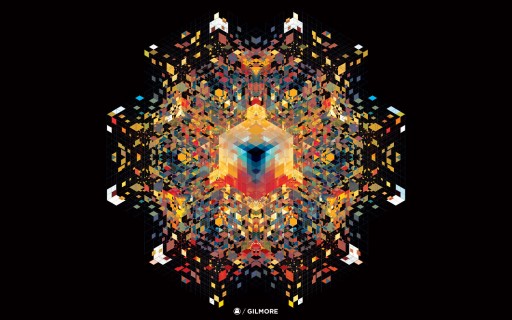Watching the drama around kagi unfold and it has me wondering how much you take into consideration a creator’s view on things like homophobia, sexism, racism, etc. when deciding to use a product. I think most of us have a bar somewhere (I would imagine very few on this website would ever consider registering on an altright platform), so where is that bar for you? What about art? Have you boycotted JKR or dropped your opinion about Picasso because they’re transphobic and misogynistic respectively? Is it about the general vibe of a product or piece of media, or are you more discerning? What goes into this decision and why?
I refuse to use the Brave browser, and I was prepared to abandon Firefox, over then-CEO Brendan Eich’s $1000 donation in support of California’s proposition 8 (banning same-sex marriage). I will never forgive the supporters of that proposition. I will not knowingly support their businesses.
I’ve lost all respect for Scott Adams (of the Dilbert comic strip) and Kelsey Grammar (Frasier actor). Their continued support for Donald Trump is damning.
I specifically had Grammer in mind in the last sentence of my reply. Such a shame :(
deleted by creator
Still a Trump supporter as of 2023.
deleted by creator
What did Brave do to you?
My problem is with Brendan Eich.
Brave has done a lot of other bad shit, even if you ignore their shithead CEO.
Honestly, there is so much art and so many services and tools out there, that I try to avoid sending money towards ones made by shitty people.
I loved HP as a kid, but I’m not going to support JKR’s dullard takes on trans people. It’s clear she knows literally nothing beyond what her transphobic friend and their wine club “LGB Alliance” of straight white women tell her, but she still feels the need to parrot it online in front of millions of people. And guess what? There are other books about magic out there.
In terms of my judgement criteria, it’s not some fixed system, but my 2 main considerations are:
- How much does a bad person benefit financially from the product?
- How much are bad people responsible for the creation of the product?
Generally-speaking, if either of those can be answered with “A lot”, I avoid it.
So for instance, in the case of Hogwarts: Legacy, while JKR wasn’t responsible for making the product almost at all, she publicly indicated that she was making a lot of money from it, so I did not purchase it.
Ditto for AWS; once I was able to afford a cheap refurb server, I shut down my AWS accounts and been self-hosting everything.
Very similar to how I view it. I will also add that if they have a platform and use it for terrible things, then that also comes into play.
Quite a bit as I’ve always found it difficult to separate the artist from the art.
I’ve never read any of HP (it was “witchcraft” and “of the devil” when I was growing up in the bible belt lol), but all the unenlightened opinions from JKR really don’t inspire me to give her any of my money, so I doubt I’ll be reading it just to see what all the fuss was about.
Even shows/books that I used to like, once I learn the author / actor / whatever is kind of a trash person, it just ruins the experience for me.
I read HP before her views came out. I still like the franchise, but get anything secondhand these days.
As many have said there is no ethical consumption under capitalism, and you can’t know everything about everyone, so no matter what you’re going to end up supporting something unethical at some point.
That being said, all I can do is act on the information I have, and when I learn about some situation like this, I don’t have an easy answer or decision flow chart. But I do ask myself two questions.
How much will my support enable more of the behaviour I find abhorrent? And how much will the knowledge ruin my appreciation of the thing?
I cannot read Ender’s Game even though I always meant to since I found out about Orson Scott Card’s politics about ten years back. And while there’s (somehow) way, way worse people out there the knowledge, especially the holocaust denial, just ruins any enjoyment I could get from the books or movies, regardless of any separate-art-from-artist arguments.
But I am a huge Lovecraft fan, and he was also just the worst. But the guy’s dead, it doesn’t matter if I buy his books or not. And even then despite his popularity across Geekdom he’s a relatively niche author. His views aren’t going to reach a lot of people.
I think this works out differently if the creator is someone current and powerful or influential. If we can blunt the impact of a popular creator spreading toxic views that prevents a lot more bad than than the same frome someone dead or niche. Even if that’s only lack of support, that’s still more.
I guess what I’m saying it is has less to do with the details of the bad views or actions, and more about much my support helps enable those. The less I contribute by watching or buying or clicking, the less I’m concerned about it. Unless it just personally bothers me.
I don’t if that’s the right answer but it’s the once I’ve got right now
Well let me just help you about Ender there - imagine an akschyaly clever kid, fedora wearing, huffing their own farts while being annoying on twitter and trying to suck their own dick all day. The image is a pimply kid almost reaching their dick, the cum blasts past their face and hits mein kampf on the spine, the kid goes into a crying diatribe about something.
I think that’s about it really, might have missed a part of the plot
I think it’s a little silly for anyone to grandstand on self-important moralistic consumption, because you can’t be a consumer of most things in the US without contributing to evil labor practices on some level.
Nearly everyone owns a computer or cell phone, and those are all produced with parts sourced unethically on some level or labor that is impoverished in a more remote or regressive part of the world.
And some artists are so incredibly good it’s impossible to ignore the quality even with their questionable morals, like Michael Jackson or Salvador Dali for example.
Everyone should make an effort to be mindful of their consumption, in my opinion, but I will always roll my eyes at people who are preachy about it. As some have mentioned, the secondary market is a great thing for trying to manage the problematic side of things, and even better, you’re upcycling when you by used.
I am a very “death of the artist” kind of guy, but I won’t give my money to people will will use it for evil. So while I’m perfectly happy to, say, buy a Roman Polanski movie secondhand, I’m not going to purchase a new copy.
As much as I resent it being the way of things, money is power under capitalism. Where possible, I try not to cede mine to people looking to do nefarious things or disseminate shitty ideals. While I don’t have much personally and Kant was a pretentious douche canoe, I’m still idealistically partial to the universal maxim.
Yeah, no ethical consumption under capitalism or whatever but we can try not to prop up people who are brazenly making the world shittier. Thinking our actions don’t matter is how we get complacency.
Its tricky, because how much do I really know about people’s views who I’ve never met? Especially more famous people who might just be crafting a public image. They might be hiding aspects of thier views that are bad publicity, or just being controversial to drum up attention.
Certainly. There’s a big difference between me giving cash and uplifting someone who is actively harming people today, and supporting a dead man’s art.
Of course remember there’s nuance as well. It doesn’t cost me much to stop interacting with JKR’s output, but buying quality shoes that don’t in some way support sweatshop owners or fast fashion represents a significant time/money investment on my part.
And if there’s something important for my health than it goes right out. idk, maybe Dr. Scholl was there on Jan 6 and I was prescribed those Dr. Scholl’s foot goobers by a podiatrist, I’m not going to quibble too much.
Which ties in to the privilege of being socially conscious. It costs me nonzero money and energy that some might not have to do all of these things. I cannot blame or fault the person who works at Chick-fil-A paying rent, even if their work supports CFA.
deleted by creator
Kagi is hard because it is so very much better than any alternative I have tried. I don’t like the guy’s views but it would substantially impact something I do for work and pleasure dozens of times every day to give it up, so I’m really struggling with that.
A lot. Also, thanks for the heads-up on Kagi. Anybody have recommendations for a privacy-respecting search engine that isn’t run by chuds? Paid is fine as long as it doesn’t suck.
I generally avoid giving meaningful contributions to chuds when possible. I was considering getting a Kagi subscription before, but upon seeing this that is no longer the case.
Have you boycotted JKR
I was never a Harry Potter fan to begin with, but if I were then I would be, yeah.
or dropped your opinion about Picasso
I don’t expect people who died centuries ago to be woke, so probably not. That someone like Picasso would be racist/sexist/queerphobic is a default assumption for me, so that already lowkey colors my perception of them when analyzing their work.
Is it about the general vibe of a product or piece of media, or are you more discerning? What goes into this decision and why?
It’s about applying pressure to provoke capitulation. I want to make clear to both them and everyone watching that being a dipshit in such a way will cost them resources and reputation. This is less effective when the creator is dead, though, so I’m not particularly concerned about their art.
You raise a really good perspective about the relevance of the artist among our culture. Older cultural influences have some significance but not the same as current artists in society. The relevance of problematic Greeks/Romans/Catholics just don’t have the same weight because we know they come from a different time and their art is a reflection of that time. If anything, it’s a sociological study of people from that time - we can still say the same for people today except for the fact that our consumption of their work can effect their estate.
Compared to current artists of today who are problematic - the likes of Roman Polanski, Chris Brown, Kevin Spacey, Johnathon Majors, Roald Dahl, these artists are much more in line with J.K.R. than someone like Picasso (or {insert problematic writer from 1850-1950}, because their works are more immediately relevant to our current culture. I also think the intent of consumption matters based on how it is then talked about - is someone is consuming the media to get an understanding of the cultural feelings at the time, something that highlights aspects of society, or are they trying to live vicariously through this character and thus perpetuating it.
As someone mentioned as well, second-hand is a way to still consume the media without directly supporting the artist. I don’t think consumption of media is inherently supportive of the ideology nor does it have to monetarily support them, though I do understand that there is a high likelihood of sharing thoughts about something leading to others possibly purchasing and supporting them.
What these conversations always come down to me is how effective is blacklisting an artist? As in, does consumption of problematic works inherently perpetuate those problematic ideas or is it able to be discussed while highlighting them? I myself am conflicted here, as one of my favorite movie has 2 problematic actors in it, but Baby Driver is so damn good and having it on my Plex server doesn’t actively support the problematic people (then, nor does it support the good workers). So it comes down to how willing or how able I am to separate the art from the artist, and how I choose to engage with said media when talking about it with others.
Someone mentioned Joss Whedon who is another great (or, awful rather) example where his actions make it harder to consume his media. But Buffy is still and always will be a classic, and The Avengers is still a big moment. Those also happen to have a lot more people than just him working on them. But the same could be said for Roman Polanski, but I am on the side of the user who said his works should effectively be dismissed. The only case for something to that extent would be for film and social studies in an academic setting where all of the knowledge surrounding it becomes part of the conversation - as an example akin to this I think it’s important to be aware of and study American Cinema. Unfortunately by nature American Comedy has deeply rooted racism ranging from creating stereotypes that still are perpetuated today, to poor treatment of actors. And yet it’s essential that we study these else we lack the historical contexts that led to change. I think the same will be said a few decades from now regarding Polanski, where we aren’t studying his work his actions but rather studying the changes in society as a result of them.
We can study without them, but we will miss important contexts that are important dynamics. Without knowing about how trains influenced filmography the impact of travel films like Thelma and Louise are less impactful than they could be. Without knowing about how awful sex scenes in film used to be, the impact of modern sex scenes led by Intimacy Coordinators can seem frivolous. Without knowing the history of blackslpoitation films contemporary ones (like Black Dynamite) made in its image may not have the same weight. They can be viewed and understood without that contextual knowledge, but the impact from viewing the media with the knowledge is very different. Which of course the whole discussion, is exactly what it’s like to consume media with someone problematic - exactly how able, or worthwhile, is separating the art from the artist? Does their intent even matter all that much if how it is consumed is completely antithetical to their position? If someone hateful has a work that everyone consumes and the socially perpetuated message is from love and kindness, does it matter if the artist is problematic? Or does their work become a slap in the face to themselves, so long as the consumers aren’t supportive of the artist but the positive message behind the work - as mentioned this could be as simple as buying the book second hand or pirating it. I don’t remotely have definitive answers to these, but I do think that the discussions surrounding problematic works can be more important than trying to sweep them under the rug in many cases. That of course also isn’t something that’s guaranteed. I’m also not trying to say that there is a definitive answer for any of these, moreso that it almost comes to be a case-by-case basis, per person.
I think it comes down to a mix of the intent of consumption, whether it’s perpetuating or highlighting, as well as the consumers worldview affecting their perspective - like how the movie Idiocracy is received across all demographics. You’d think the conservative mindset would write this movie off, but somehow there is a narrative that fits into their worldview that affects how they perceive and interact with the media.
I’m also not condoning any problematic artists. I grew up with Harry Potter but I haven’t interacted with the IP since the final movie (not the new series), and my interactions since have been through my Plex server, so no direct support. I was interested in the game as a concept and there are people that aren’t her who worked on it, but I’m also neither invested enough in the IP nor interested in supporting her - were I ever to try to play it I would pirate it outright, and I think it would mostly be so that I was able to have a full understanding of the game, its mechanics, seeing the specific problems as they’re presented in game. But that’s me consuming the media with this knowledge in mind, almost inherently creating a dialogue between myself, the property, and society. With that in mind, is my playing that game problematic? Some might still think so, others might think not. I think the same could be said for video games that get called “woke”, such as The Last of Us 2 being poorly received upon release - from an outsiders perspective many critiques were almost entirely comprised of misogyny. Any actual shortcomings of the game were eclipsed by things that just were not an issue, but some consumers decided it was. The reality for that game seems simple; people wanted more Joel and they didn’t get that. Our cultural shortcoming of respecting women have heavily affected any media that represents them, calling them things like Mary Sues or just using woke as a blanket term.
(cont) Finally, there are so many people and examples that I also don’t explicitly fault anyone for liking a problematic artists work, within reason. Someone can love the A-Team and have no idea Crazy Murdock is certifiably insane, or Dilbert strips etc. Consumption with ignorance isn’t ideal but it’s okay within reason. I also think that people can be allowed to have an exception. I don’t support deforestation for Palm Oil but I fucking love Nutella and I’m sorry but I won’t give that up as it’s been the one thing that has kept me going at times of despair. I’m allowed to have that and I can feel okay rationalizing it because of how I carry myself for other products, even if my consumption of it isn’t inherently ethical. Whether or not purchasing Nutella negates my convictions (like boycotting Nestle and trying to avoid non-sustainable practices) becomes irrelevant because it comes down to my happiness. I feel the same way for AI art for general consumers - I personally think that it’s people like little Timmy and overworked Jane who are just using Midjourney to make fun photos to make themselves happy. These are people who likely wouldn’t be commissioning art anyway, and their happiness is allowed to exist. For production of other things someone mentioned shoes as another example, which I personally try very hard to find ethical ones but in practice I always end up with PUMA’s because they fit my feet and have lasted longer. It’s something I wish I could change, but I’m stuck between values and blistered feet and buying another pair far more quickly than usual (just for this one example I bought shoes from Thousandfell and I had to get a new pair within 6 months from basic work wear) just to have to break them in again.
I think media from the perspective of ethical consumption is only a skipping stone away from corporate consumption, with the main difference being that the former you have a little more freedom of choice to decide with a much wider range of acceptability - is the author someone you want to support or do they just have an idea worth talking about, but you need to be informed first? Compared to which handbag/pair of shoes I should by because of how other people perceive my social status.
The former may have problematic elements but they can be discussed and support isn’t as outright. It’s more likely to highlight the issue, even if you’re consuming the work of someone problematic. The latter is a byproduct of societies problematic elements, it is hard to not perpetuate the issues unless you are specifically going out of your way to correct them, if you can buy second-hand or whatever else. Anyway, I realize I scoped this out a bit wider than the original question, but only because I think they are closely related, the main difference simply being that it’s not necessarily inherently ethical to consume a problematic artists works, while general consumption is just so difficult to avoid problematic business.
Picasso actually died in 1973, but yeah, still decades ago.
TIL. He’s a lot more recent than I thought.
This actually reminds me of my favourite Pablo Picasso quote. (Note: I don’t really know anything about Picasso, so take that with a grain of salt)
In the New York Times in 1969 (https://timesmachine.nytimes.com/timesmachine/1969/07/21/90114401.html?pageNumber=6), when asked about the moon landing, he said “It means nothing to me. I have no opinion about it, and I don’t care”.
First off, the kagi news is a bummer. I’ve really liked it and picked up a subscription mostly because of some buzz I saw around here, but seeing this news is a shame and setting up some red flags in my mind.
But to answer your question, I think I personally have a couple ways I approach this…
-
If the evidence someone is transphobic, racist, etc…is from a long time ago (eg someone is digging up ancient tweets to prove someone is some sort of “-ist” today), I tend to give them more grace because people should be allowed to change. I know I didn’t have great views on some of this stuff when I was younger and it’s easy to forget these celebrities/people in power are fallible human beings. I’ll take their response to unearthing these views as a sign of whether or not they’re worth supporting going forward. If they’re regretful and seem like they’re trying to do better, I’m good. The kagi creator seems to not pass this standard for me.
-
If it’s something I want to use/consume and it could impact more than just the individual. JK Rowling is a good example of this. I’d struggle to want to buy any of her books again because I see a clearer line of sight from my purchase to her pocket. But something like Hogwarts Legacy, which I knew I would enjoy and my wife would love, and is made by many people with a passion for her world, I’m OK with it. The line to Rowling is a lot blurrier and impacts people who don’t have a say in what project(s) they work on.
It’s also easier to ignore or skip smaller scale things like an indie game from a deplorable developer vs. the next Marvel/HP/insert your beloved franchise game from someone equally deplorable. None of this is ever perfect and time and attention are finite resources for all of us. If Harry Potter is how you need to unwind because it’s your favorite thing, more power to you. It’s not my job nor anyone else’s to police the things you like or make you feel bad for liking them.
We should all do our best to try and support good people in a system that incentivizes bad people and give ourselves some grace when we (seemingly inevitably these days) find out those people were actually scum.
I think there’s something to be said about timeframe even for individuals who held deplorable views. Purchasing art from a dead artist doesn’t go to supporting their life or spreading their shitty viewpoint - instead it will go to a company which holds the rights or an estate which benefits the family. Unless we happen to know the company/estate is deplorable in some way or another, we shouldn’t judge them based on the connection with the original artist - after all we don’t get to choose our parents and may not hold the same views they do.
100%. And going down that path you can start to enter into the whole “OK, so all companies are bad or do bad things, but I also need to be a functioning member of society.”
I can hate what Shell/Marathon/BP are doing to the environment but I also need to make sure my car gets me to work. Google or Apple can enact terrible policies I disagree with but generally speaking I have to deal with them to have a cell phone. Easier when we’re discussing a piece of artwork (not a core need in life) but it’s where my comment about a system that incentivizes “bad people” really came from.
So I think my moral philosophy is actually closest to show The Good Place now that I see it written out!
-
deleted by creator















